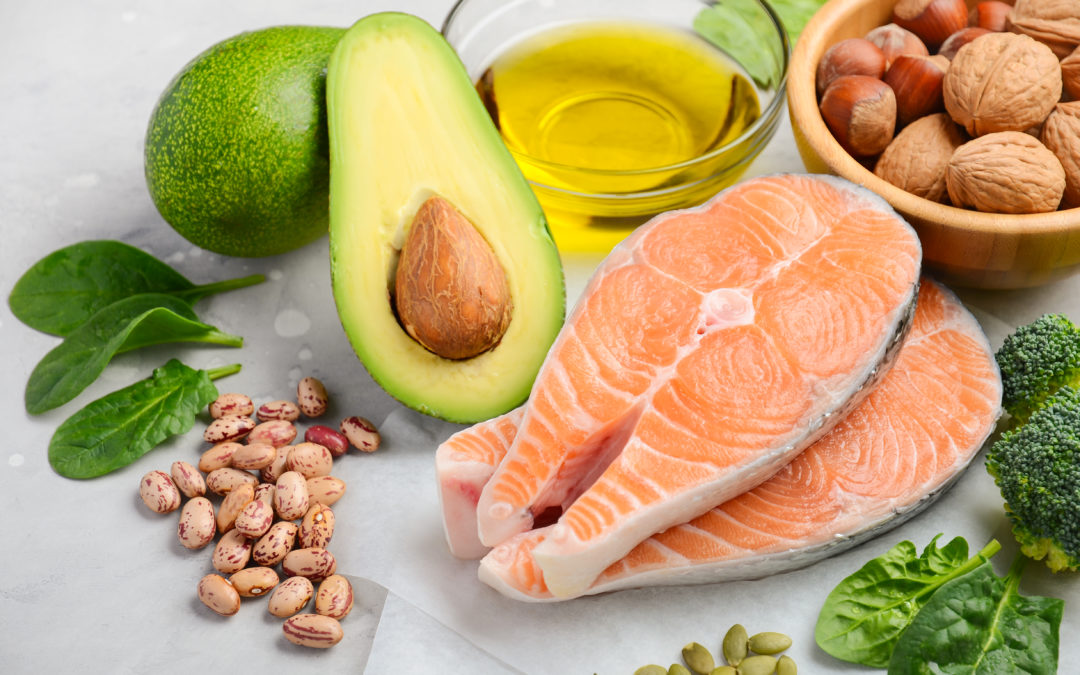There are lots of myths, misconceptions and misinformation regarding the food that we eat or beverages that we drink. Which is why we are here to debunk these 7 common food myths!
1) Myth: Canned And Frozen Vegetables Are Unhealthy
You may think that it’s always safe to go for fresh vegetables. But do not dismiss canned and frozen varieties commonly found in the supermarkets. Whatever you have heard in the past, keep in mind that canned and frozen vegetables aren’t bad for you. For instance, frozen vegetables like carrots and corns are typically frozen at the time of harvest. Most of the nutrients are actually preserved using the blanching method before freezing.

Image Credit: foodandnutrition.org
2) Myth: Every “Fat” Food Will Make You Fat
Just because there’s a word “fat” in fat foods does not mean you will end up gaining weight. Unless they are unhealthy fat foods like potato chips, fried chicken and fries. No, we are talking about food that actually give you “healthy fat” or “good fat”. Among them are avocados, dark chocolate, unsalted nuts (e.g. almonds, walnuts), fatty fishes (e.g. sardines, mackerels and salmons), cheese and whole eggs.

3) Myth: Red Meat Causes Heart Disease
You may have heard your mom saying things like, “eat less meat, consume more vegetables!”. It turns out that red meats like beef, lamb, pork and mutton are not the main culprit that causes heart disease or high blood pressure. In fact, red meats can actually boost your metabolism, reduces inflammation and even help you to lose weight. But before you go crazy over the red meats, remember to consume them in moderation and always have a balanced meal (yes, that means pairing them with vegetables still matters).

4) Myth: It’s Okay To Eat A Lot As Long As It’s Healthy
Healthy foods like oatmeal, almonds, berries, apples and eggs each have their vital roles that promote good health for your body. But does that mean you can eat as much as you want? The short answer is “no”. Take eggs, for instance. Consuming too many of them (like three to four per day) may cause stomach discomfort and even raise your cholesterol levels in a long run. Always eat in moderation!

5) Myth: Consuming Dairy Products Increase Mucus Production
Dairy products like milk and ice cream are typically pointed as a culprit for increasing mucus production. And this would-be factual belief has been told and practised for centuries! But it turns out there isn’t enough scientific evidence to prove that dairy products are the one to be blamed. According to a study, 60 adult volunteers in Australia were all implanted with the common cold virus. Researchers monitored their milk and dairy intake over the course of a 10-day period. As a result, there was no link between milk consumption and mucus production.

6) Myth: “Natural” And “All-Natural” Foods Mean Good And Healthy
If you frequent supermarkets and grocery stores, you will come across certain food with a familiar label that reads “natural” or “all-natural”. Here’s the question: do those words actually mean that they are better for you? Sorry to break this to you but those words actually mislead customers into thinking as such. According to the FDA, the term “natural” actually means nothing artificial or synthetic ingredients are used during the process of a food. But bear in mind it doesn’t include food production methods like pasteurisation or being treated with pesticides.

7) Myth: Juices Are Just As Good As The Whole Fruit
No time to snack on a whole apple? Most of us would think that the easier and more convenient way to consume fruits is to drink a glass of freshly-squeezed juice. So, if you think that juices provide the same nutrients as the whole fruit, think again. Juices are actually loaded with natural sugar that will be absorbed faster into your bloodstream, which is similar to what a carbonated soda does. When you juice your fruits, the blender will separate their dietary fibre from the liquid and leave only the liquid in the glass. The dietary fibre is actually a vital nutrient since it helps maintain our blood sugar levels and also promotes digestive health. But don’t get us wrong. We are not saying that fruit juices are bad for you. It still has its own health benefits. The only biggest difference here is that no matter how you juice it, you can never beat the whole fruit.















